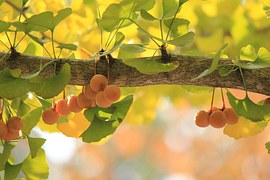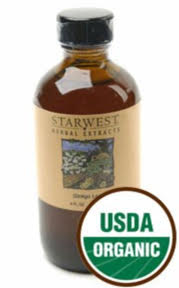 If you are taking a trip into higher altitudes, you may be interested in ginkgo biloba for altitude sickness. This herb is very helpful for this issue and will bring you a lot of relief.
If you are taking a trip into higher altitudes, you may be interested in ginkgo biloba for altitude sickness. This herb is very helpful for this issue and will bring you a lot of relief.
In this article, you’ll see exactly how it works and why it’s one of the best remedies for this problem. Also, you’ll learn how to take it, side effects and additional tips to keep you safe.
Before all that, take a look at some altitude sickness information.
What Is Altitude Sickness
Oxygen levels change at higher altitudes. At around 8000 feet, there’s less than half the oxygen in the atmosphere than at sea level. Because of this, your body becomes oxygen deprived and altitude sickness happens.
Dehydration plays a key role too. At higher elevations, fluid moves out of the blood and into the blood tissues. When the blood thickens, dehydration interferes with efficient distribution of nutrients and oxygen and impedes the elimination of wastes.
This can result in undesirable effects like headache, fatigue and extreme thirst. Other symptoms of altitude sickness include:
- Dizziness
- Heart palpitations
- Shortness of breath
There are more than 200,000 cases in the US alone and symptoms can last up to a few weeks; although most pass in a few days.
Ginkgo To The Rescue
One of the most fascinating things about ginkgo is it comes from the oldest surviving tree on earth and came into existence over 200 million years ago. It’s a sacred tree in Asia and you will find it planted around Buddhist temples.
It’s been researched and shows very promising results in many different conditions. What can this ancient and sacred herb help with? Here’s a few things:
 Alzheimer
Alzheimer- Stroke
- Heart disease
- Impotence
- Deafness
- Blindness
- Memory loss
- A safe blood thinner
This is one of the highest selling herbs too, with sales over a $1 billion annually. Also, it happens to be very helpful in altitude sickness.
Your brain consumes 20% of all oxygen inhaled. The most common cause of altitude sickness, known as acute mountain sickness (AMS), happens because your brain isn’t getting enough oxygen.
Ginkgo works by increasing blood flow all over your body and especially to your brain; this is important because oxygen is transported by your blood to all the cells and tissues in your body. In one study, rats were given ginkgo and showed a definite increase in cerebral blood flow and tolerance to low-oxygen effects. Obviously, this is great for altitude sickness.
In another study, two groups of mountain climbers were given either ginkgo or a placebo before a climb in the Himalayas. The group taking ginkgo experienced far less symptoms of altitude sickness than the group that didn’t take it.
There are medications for altitude sickness but as Dr. Edward Rosick notes, “they have many side effects.” Two of these prescriptions, Diamox and dexamethasone, can cause:
- Nausea
- Diarrhea
- Fatigue
- Frequent urination
- Fever
- Kidney and liver problems
- Depression
- Ulcers
- Cataracts
It would probably be better to suffer from AMS than experience any of those side effects.
How To Take And Dangers
For this issue, a ginkgo extract is recommended. The standard dosage is between 60 to 240 milligrams a day. You can spread this out through the day and take 50 or 60 milligrams at a time.
This herb is safe to use and comes with very few side effects, unlike the pharmaceutical options you saw in the last section. In larger than recommended dosages of this extract, you can experience irritability, restlessness, diarrhea, nausea and vomiting.
Talk to your doctor before using if you are on blood thinners, pregnant or have any clotting disorders.
Other Tips To Avoid Altitude Sickness
There are a few things you can do to minimize or prevent this problem. The first is to ascend slowly, at around a few thousand feet a day. If you can do this your body will naturally acclimate to the change in oxygen levels.
That usually isn’t a viable option if you are a mountain climber or if you are skiing for the day. The next best thing you can do is hydrate before your climb and continue to hydrate as you increase elevation.
There are a few other herbs that will help you out a lot too. Some of them are:
- Clove
- Garlic
- Horsebalm
- Reishi
There are many herbs that act as blood thinners, which will aid you. One I just mentioned, cloves, and others are:
- Allpsice
- Bayrum leaf
- Galangal
- Carrot Seed
- Shrubby basil
- Cinnamon
- Bayleaf
- Marjoram
According to Dr. James A. Duke, renowned herbalist, you can make a “Altitude Adjustment Tea” by steeping in a pot of boiling water cloves, allspice, bayleaf, celery seed, cinnamon and marjoram. He recommends you mix in as many of the following mints too:
- Basil
- Mountain dittany
- Savory
- Thyme
You may not have access to all these herbs and you should mix in as many as you can get your hands on.
I Hope You Found What You Were Looking For
Altitude sickness isn’t something you have to suffer from. With the right precautions and the right herbs, you can limit your risk greatly. One of the best herbs is ginkgo biloba and it is easily obtainable and very affordable.
 If you are looking for a supplier that offers VERY high quality herbs, I would like to recommend Starwest Botanicals. They are my personal favorite and I have never had a problem with them. They offer ginkgo extracts for under $12 and it will get delivered right to your home. To learn more click below:
If you are looking for a supplier that offers VERY high quality herbs, I would like to recommend Starwest Botanicals. They are my personal favorite and I have never had a problem with them. They offer ginkgo extracts for under $12 and it will get delivered right to your home. To learn more click below:
Learn More About Starwest Botanical’s Extracts
If you have any more questions, please comment below and I’ll respond as fast as possible. If you like what you read and want your family and friends to see, share on social media.
Thanks for reading!

Thank you Dylan for the information on this unique tree.
I remember once taking Ginkgo Biloba for a period of time but it didn’t really help. However, the issue that I had at the time is completely unrelated to altitude sickness. Also, it was in capsule form which probably made it less potent and I took it for a short time. I will look at Starwest Botanicals when I make my next purchase as their quality and price seem to be more than decent.
What did you take it for? You definetly want to take the right herb for the right problem. And Starwest is really great, you can’t go wrong with them